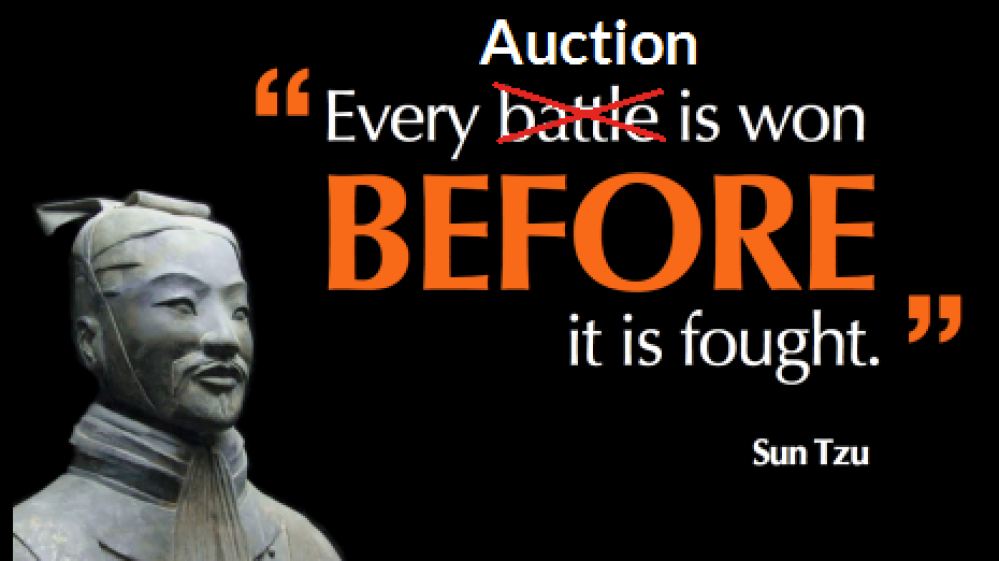"If You Want Peace Prepare for War" - Protecting Your Brand On PPC
12 Feb 2015

Brand keywords are often the very first thing you build in an AdWords account and can seem like a bit of a no brainer to many. After all, why would you want competitors to appear above you on search engines when the cost to prevent this is so low? However what if the cost starts to rise? Is bidding on brand still a viable option and what can you do to diagnose and prevent the issue?
The basics of brand bidding
Bidding on brand is generally a cheap strategy and you will almost certainly see your core brand keywords having the lowest average CPC in your account, normally many folds lower than generic terms. Why is this? Well it's mainly due to Google's mystical Quality Score that we so often refer to. As your site should be chock filled with references to your brand name, achieving a top quality score should be easily achieved.
This means the bid you need to hit the top position in Google's Ad Rank calculation is significantly lower than competitors, whose quality scores should be very poor.

Trouble in paradise
If you're lucky enough to work in a placid market you may not even need to bid on brand and if you do, your brand campaign will likely tick over with very little change. However, for anyone who works in a more aggressive environment, you're likely to see a variety of competitors bustling for a presence on your brand name. This inevitably means one thing for you – rising costs.
Your best tool to monitor and diagnose brand CPC changes is the auction insights tool. As Kat writes about here, the stats it can provide can be a very useful way to see overall, as well as individual competitor activity. If you start linking these changes with fluctuations in brand CPC, suddenly you have a very clear explanation as to why this is occurring:

"If Ignorant Both of Your Enemy and Yourself, You Are Certain To Be in Peril"
The first thing you need to do to combat competitor bidding against you is to stop assuming your brand campaign will tick over happily; the second is to realise that it's happening! It's a time consuming task to effectively manage an AdWords account and often areas other than your brand campaign have bigger issues to solve. Don't let this distract you though; make sure you include brand with all your regular optimisation work and check the trends of some core stats (ad position, CPC, impression share etc).
If you're not doing this you leave your loyal customer base exposed and open to sudden sniping/flash bidding by rivals:

( Kat also highlights a great example of this, where BooHoo cleverly took advantage of a rival's mishap.)
Next, check your Brand keyword coverage, if your campaign consists of a handful of very short keywords you're probably leaving holes where users will slip through. Although close variants will help, build out a variety of phonetic or 'typo' keywords. Don't stop there though, you can keep your brand CPC down by matching more keywords in search queries (for a better QS) and making sure you hit searchers who are looking for different areas of your site:
Since you're looking at your keywords already, make sure you review your negative keywords too, especially if you use shared lists. Whilst for generic campaigns you may not want to waste money advertising on queries containing words such as "review", "cancel" or "what is", for brand it might just be worth that small cost to prevent rivals getting on top of you. Much the same can be said for terms around "logging in", "contact us" and similar terms – don't let your rivals get free advertising space on your loyal customers!
Once you've done this you might want to consider checking over your campaign settings and bids. The last thing you want is to ever be caught short on budget or to be outbid, so make sure you increase those budgets and put high bids in as a safety buffer. Remember it's a MAX CPC and you'll rarely pay anywhere near that level. You'll also want to set your delivery settings to 'accelerated' so your ads are eligible to show all the time.
"If You Want Peace Prepare for War"
As a final gasp, it's often the case that competitors breach Google's advertising policies on rival (your) brand bidding, so remember to brush up on these and give AdWords Support feedback on any violations. This could be if your trademarked term is being used or if your brand has been used and the ad is misleading.
Now you should be ready for anything they can throw at you. Good luck and remember:

That's the last Sun Tzu quote I promise.
Make sure you keep an eye out for Emma's article (coming soon) to see a case study on the overall positive impact of Brand bidding.
To view the article as displayed on Periscopix's website, please click here.




Please login to comment.
Comments